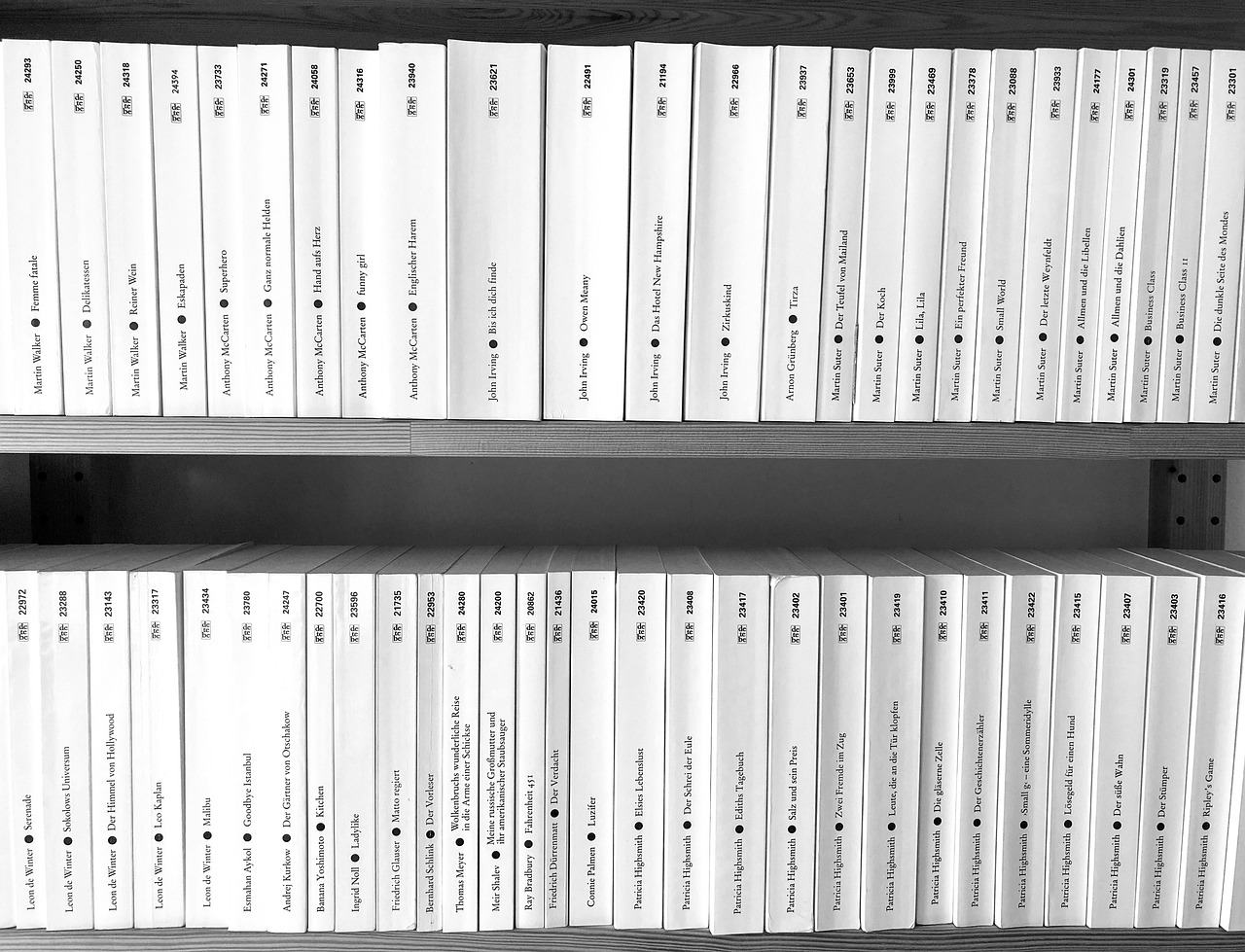The Key Considerations & Pros and Cons of Hybrid Publishing
We've put together some key considerations for hybrid publishing in this guide. The hybrid model has made a lot of people in the literary scene skeptical; however, like most things, there are pros and cons to it.
What Is Hybrid Publishing
Traditionally, there were two ways of publishing a book. These were:
- Traditional publishing
- Self-publishing
The former was the most conventional way for a long time. Traditional publishing involves signing with a literary agent who funds the full production of your book. Self-publishing has become increasingly popular this century. This is where an author funds the production of the book entirely by themselves, usually with the help of a self-publishing service.
Hybrid publishing has burst onto the scene in recent times. It is basically a combination (or hybrid) of traditional and self-publishing.
With the hybrid publishing model, the author signs with a publishing agent who will handle the production of the book; however, the author will fund most of the production themselves.

Pros and Cons of Hybrid Publishing
Like all types of publishing, there are pros and cons to hybrid publishing. It shares benefits with self-publishing and traditional publishing, as well as advantages and drawbacks in comparison to these two more common methods.
Hybrid Publishing vs Traditional Publishing
The publisher you work with within the hybrid model will have your book fully edited by a professional (like a traditional publisher would). They will also handle all the technical aspects of producing the book, like formatting it for print or eBook and having it printed. With these benefits, it is worth noting that the hybrid model is much less competitive than the traditional publishing model. That's not to say it's easy to get a book published; it's just that there is less competition than with traditional publishers. On top of this, hybrid publishers are more likely to take on authors who haven't already been published, whereas traditional publishers generally only take on board authors who have already achieved a level of success. So, it can be easier to get a book published with the hybrid model than with the traditional model.
The big drawback is the cost. In the traditional model, the publishing company takes on all the costs of the book's production. This means that once they've accepted your work, they will take full financial responsibility for every aspect of editing, printing, or otherwise making the book itself. However, in a hybrid model, you will have to fund the majority of the production of your book. While the hybrid publisher takes care of things like editing and printing, you will be the one paying the bill.
With a traditional publisher, you will likely get a bigger advance, but you will get a smaller amount of royalties. With the hybrid publisher, you don't get an advance, but you will get a larger share of royalties from the book. This is a key factor in favor of hybrid publishing: In theory, you will make more money from individual books sold. A legitimate hybrid publisher will always offer an author more royalties than a traditional publisher.
One thing a traditional model has in its favor is a higher guarantee of standards. In the hybrid model, there are a lot of scams to be aware of. With a traditional publisher, you can rest assured that the business is legitimate and that their standards for publication are high. The standards for a hybrid publisher are not guaranteed to be high. While a legitimate hybrid publisher will produce the book to a high standard, there is no regulation in this area.
Pros and Cons of Hybrid Publishing Compared to Traditional Publishing
Pros
- It's less competitive than traditional publishing
- More royalties than traditional publishing
Cons
- There are a lot of scams to be aware of
- It's a bigger financial investment
- There's no guarantee of quality
- There's no advance
Hybrid Publishing vs Self Publishing
The first big consideration for the pros and cons of hybrid publishing vs. self-publishing is the likelihood of the book actually making it into shops. If you are looking at producing an ebook, then this is not a big concern. However, if you're looking at selling physical print books, then a publisher would have stronger links and a better chance of making this happen. With self-publishing, it can be difficult to sell print books because you don't have the same connections as a publisher. As a writer, there are a lot of challenges to getting your book published, and a hybrid publisher has an advantage over self-publishing because of the ease of getting it into stores.
In addition to this, the publisher would do a lot of work in terms of marketing the book. It is in the publisher's interest for the book to be successful, so they would put a lot of work into its marketing. They will seek out good reviews and publicity for your book, and they will have knowledge of your target audience. In the self-publishing model, the authors would have to do all the marketing by themselves.
Another big consideration is the amount of creative control you have as an author. If you are self-publishing, then you will have total creative control and produce the book in whatever way you wish. However, a hybrid publisher will want a level of creative control over your book.
With both self-publishing services and the hybrid model, there are scams to be aware of. It's always important to do research before making a financial commitment.
In terms of other financial aspects, with self-publishing, you will get the full share of royalties from your book sales. However, with hybrid publishing, while you get a larger share of royalties than traditional publishing, you will get a smaller share than self-publishing. One thing hybrid publishing has in its favor over self-publishing is that although you will pay for the majority of the costs of production, the publisher will contribute something. In the case of self-publishing, you will have to fund everything yourself.
Pros and Cons of Hybrid Publishing Compared to Self-Publishing
Pros:
- It's more likely you'll see your print book in stores
- A good publisher will have knowledge of producing books to high standards
- A good publisher will have connections for marketing and promotion
- It's usually cheaper
Cons:
- There are a lot of scams
- You will not have complete creative control
- You get a smaller share of royalties

Key Considerations for Hybrid Publishing
Whether hybrid publishing is the way to go for you or any other author depends on your situation. There are a number of key considerations for hybrid publishing when thinking about using it.
For one thing, think about your budget. How much can you afford? Self-publishing is more expensive than hybrid publishing, while in traditional publishing, you get an advance. So you have to consider what you can afford. If you are going with a hybrid publisher, you have to lock down a good price that you can afford while still getting a good-quality product.
While self-publishing generally costs more than the hybrid model, you will have more control over aspects of the production. So if you cannot get a guarantee that the book will be produced to a high standard with a hybrid publisher, you would be better off going with a self-publishing service.
Another consideration is marketing. Hybrid and traditional publishers have good marketing and promotion contacts. And they will do a lot of the work for you. If you are self-publishing, you have to take control of this yourself. Do you think that is something you will be able to do? Marketing your book is an important part of ensuring it sells. You can market the book yourself through your own social media accounts, but publishers will have more resources for marketing.
Distribution is something else to keep in mind. Publishers are obliged to distribute your books, and they will have the connections to do so. It can be very costly, and it takes a lot of effort to distribute them on your own.
Along with these financial and practical aspects of the book, it's worth considering the creative side of things as well. How important is it for you to retain complete creative control over the entirety of the project? A traditional publisher will want to have a major amount of creative control, while a hybrid model will want a large amount too. Self-publishing is the only way you can maintain complete creative control over your book. That's not to say traditional and hybrid models will necessarily want to make large-scale wholesale changes. But the thing is, they will have the right to rework things if they are publishing your book. So you have to consider how important the creative aspects of things are for you. How would you feel if you were asked to make changes?
When making the decision over whether to go with hybrid, traditional, or self-publishing, you need to ask yourself what is important. So think about the following:
- Are you willing to give up a level of creative control?
- Are you okay without getting an advance?
- Do you have the experience and reputation to be taken on by a traditional publisher?
- How much of the production can I afford to finance?
- Do I have the capability to market my book by myself?
- What literary connections do I have?
- Do you have the means to sell your books directly to yourself?

All in all, hybrid publishing is a good way to ensure your book actually does get into stores or other outlets, but for the hybrid model, consider the specifics of the contract you are being offered as well. Does it meet the basic standards? We're going to look further into this below.
Hybrid Publishing Guide
So what is the minimum you should expect from a hybrid publisher? There are basic standards that a traditional publisher holds that a hybrid publisher should also have.
The hybrid publisher should share your vision. There should be a clear mission for publishing and marketing your book. The publisher should be able to clearly lay out this plan for you before you get on board with them.
A good hybrid publisher should have reasonable standards for the books they publish. They should not just accept any submission. The publisher should be able to show you their record of books they have published and books that have sold in good numbers.
In terms of quality, the publisher should meet industry standards. This means the editing and design process, as well as the physical production of the book, should be that of a traditional publisher. They should produce the book to a good standard and use their own ISBNs.
When hybrid publishers produce books, they are responsible for distributing them. They should also publish, at least in digital and print formats, while ideally offering options for more formats. A good publisher should have strong connections in the literary industry to market and distribute your book.
Everything your publisher is going to do should be clearly laid out beforehand. There should be a clear indication of what you are paying for and what royalties you will be receiving. A good publisher will be transparent about those things.
Before You Start
Before you get started working with a hybrid publisher, you need to look at all the terms of the deal in detail. Always read the contract thoroughly and get the key points clearly established. You want to have exact clarity on what you are paying for and what percentage of royalties you are getting. This is an important part of not getting scammed. Your royalties should be higher than they would be in traditional publishing.
It's completely reasonable and wise to look for assurances in the quality of the production of the book. The publisher should be able to guarantee that the book will be produced to a high standard, and they should be able to tell you their distribution plan.
To ensure you're getting the best deal, it's a good idea to look around at different publishers. When you find a hybrid publishing company you like, you should do some background research to ensure they are legitimate.
And remember, when pitching your book to any publisher, do so with confidence.
Final Thoughts
There are pros and cons to the hybrid model. It's important to think about what is right for you with your specific project and to do the research before committing to a publisher.










